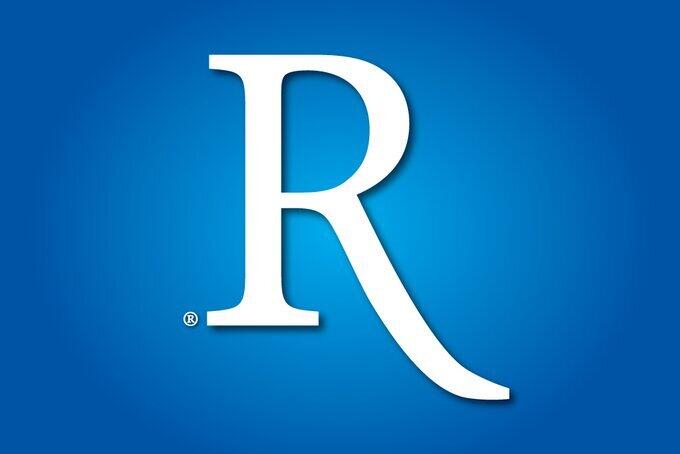
Tuesday, January 30, 2024
Here’s a sad and textbook case of how companies all too often use the strong-arm of government to destroy their competition.
The online gambling industry in America spent years and years fighting against the powerful Las Vegas casinos to make online sports betting legal in the states.
They won a historic Supreme Court case in 2018 that struck down the Professional and Amateur Sports Protection Act, a federal ban on sports betting throughout the United States.
The court recognized this law as a protectionist racket — and, for better or worse, almost overnight the floodgates were opened in most states for legalized online sports betting.
But now the kings of the hill in the online sports betting world — led by FanDuel and DraftKings, the same companies who profited so much from that court’s wise decision to deregulate — are using the same flawed legal logic that they argued against to make popular sports fantasy league wagering illegal.
Just like the bricks-and-mortar casinos that they fought against for years, the online betting association is flexing its political muscle to try to extinguish this new competition.
They have good reason to be worried. The fastest growing sport in America — in terms of participation and revenues — is fantasy league sports. You can play while planted on the couch on your cellphone.
There are now some 50 million Americans who draft players (that’s half the fun) and compete for money by scoring points based on how well their draft picks perform statistically (for example, by scoring a touchdown) in the actual game played on the field or on the court.
The fantasy leagues are so popular that they dramatically increase TV nationwide audiences for regional games — not just when the hometown team is playing. Fantasy has spread to baseball, soccer, basketball (pro and college) and even the TV show “The Bachelor”!
Fantasy leagues have evolved from a weekend hobby in fraternities 20 years ago to giant payoffs and big business.
The estimates range widely about how much money is bet every year — because much of the revenues are never reported to the government.
But the Sports Management Degree Hub estimates about $18 billion exchanged hands in 2022, up from less than $5 billion a decade ago.
Drafting players can go for as little as $2 to as much as $5,000 in high-stakes games.
At issue is whether fantasy sports leagues are like a roulette wheel and are pure games of chance, or whether they are games of skill that require players to make smart draft decisions like a general manager to build a “winning” team. The Sports Betting Alliance, a lobbying arm of traditional online gaming firms, recently brought a complaint in Wyoming that the fantasy leagues are “sports betting sites … operating under the guise of fantasy sports.” They claim these are illegal, unlicensed and unregulated gambling establishments that must be shut down. The Wyoming Gaming Commission bought the argument, and under lobbying pressure, other states are looking at doing the same.
The Wyoming decision overturns nearly a century of precedent that games of skill are treated differently from games of chance in federal and state law. If the gaming commissions — which naturally want to regulate as much of the industry as possible to expand their powers — don’t back down and the Sports Betting Alliance wins the day here, either the online fantasy leagues go out of business, or they will be hobbled by a thicket of complicated and costly government regulations. Either of these options are just what the fantasy league competitors are seeking.
But what the state gambling regulators can’t identify is why there is any problem here that needs fixing. The public is not being harmed. The leagues are wildly popular with 50 million Americans. Can they all be wrong — or wronged here? No.
Clearly, the only “victim” here is the gambling industry itself, which is acting like a mafioso boss who objects to a competitor invading his monopoly.
Instead of taking a tire iron to the perpetrators, they rush to the courts for protection.
Here’s something you can bet on: If FanDuel and their buddies prevail with this tactic of siccing government regulators on their competition, the biggest losers will be the tens of millions of Americans who have fallen in love with fantasy sports.
To borrow a sports metaphor, the courts should simply say: No harm, no foul.
Stephen Moore is a co-founder of the Committee to Unleash Prosperity. He is an economist with FreedomWorks and is serving as an economic advisor to the Trump campaign.
COPYRIGHT 2024 CREATORS.COM
Rasmussen Reports is a media company specializing in the collection, publication and distribution of public opinion information.
We conduct public opinion polls on a variety of topics to inform our audience on events in the news and other topics of interest. To ensure editorial control and independence, we pay for the polls ourselves and generate revenue through the sale of subscriptions, sponsorships, and advertising. Nightly polling on politics, business and lifestyle topics provides the content to update the Rasmussen Reports web site many times each day. If it’s in the news, it’s in our polls. Additionally, the data drives a daily update newsletter and various media outlets across the country.
Some information, including the Rasmussen Reports daily Presidential Tracking Poll and commentaries are available for free to the general public. Subscriptions are available for $4.95 a month or 34.95 a year that provide subscribers with exclusive access to more than 20 stories per week on upcoming elections, consumer confidence, and issues that affect us all. For those who are really into the numbers, Platinum Members can review demographic crosstabs and a full history of our data.
To learn more about our methodology, click here.